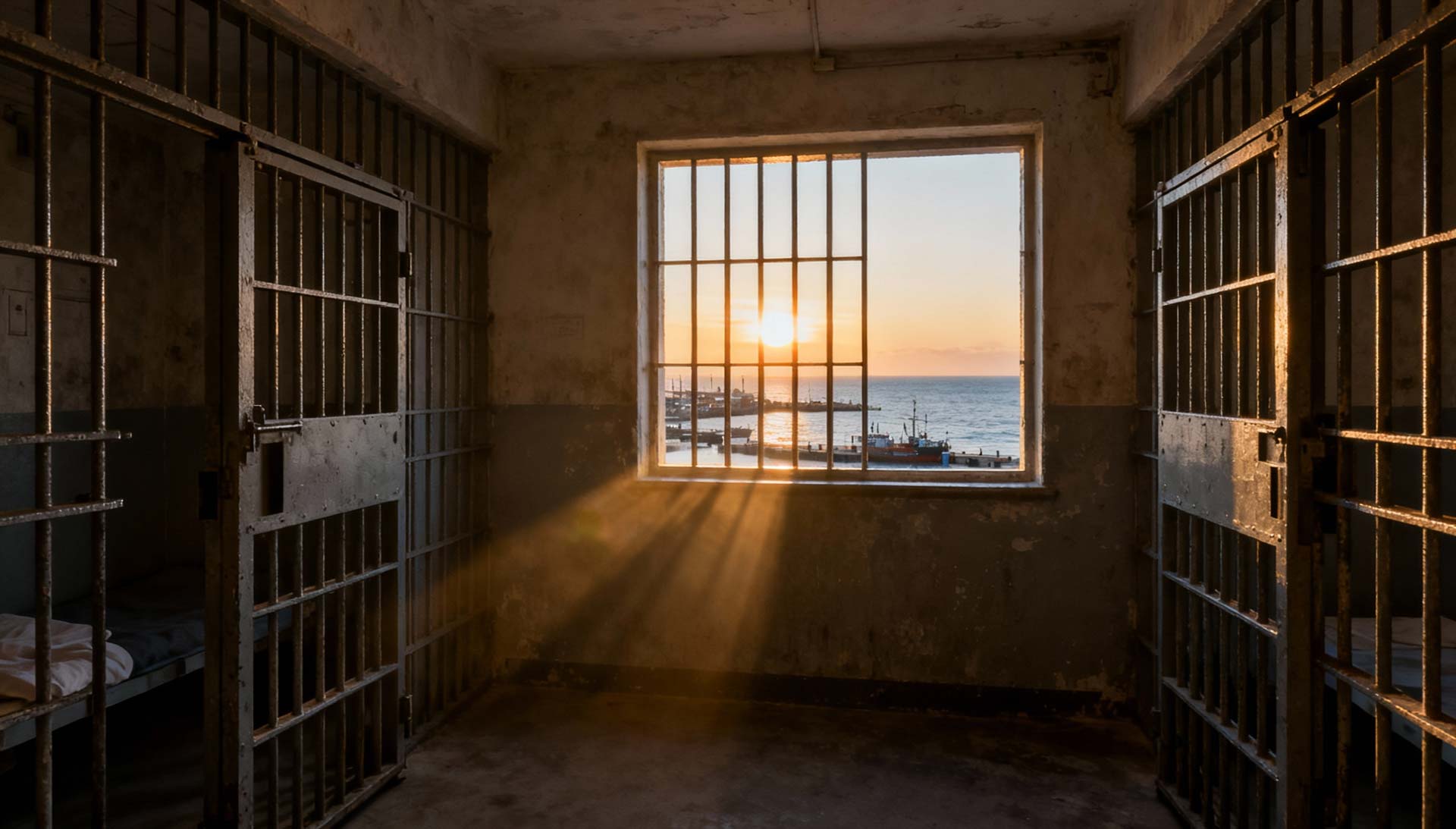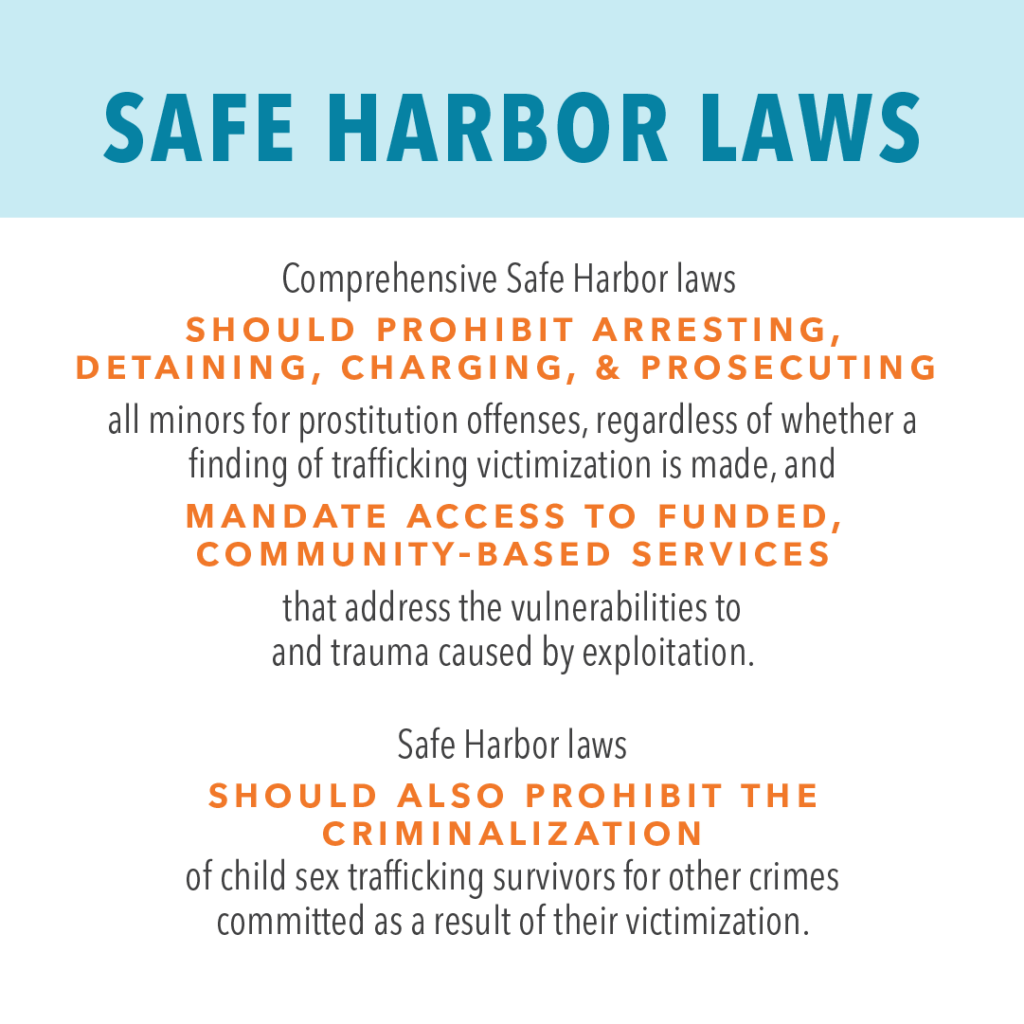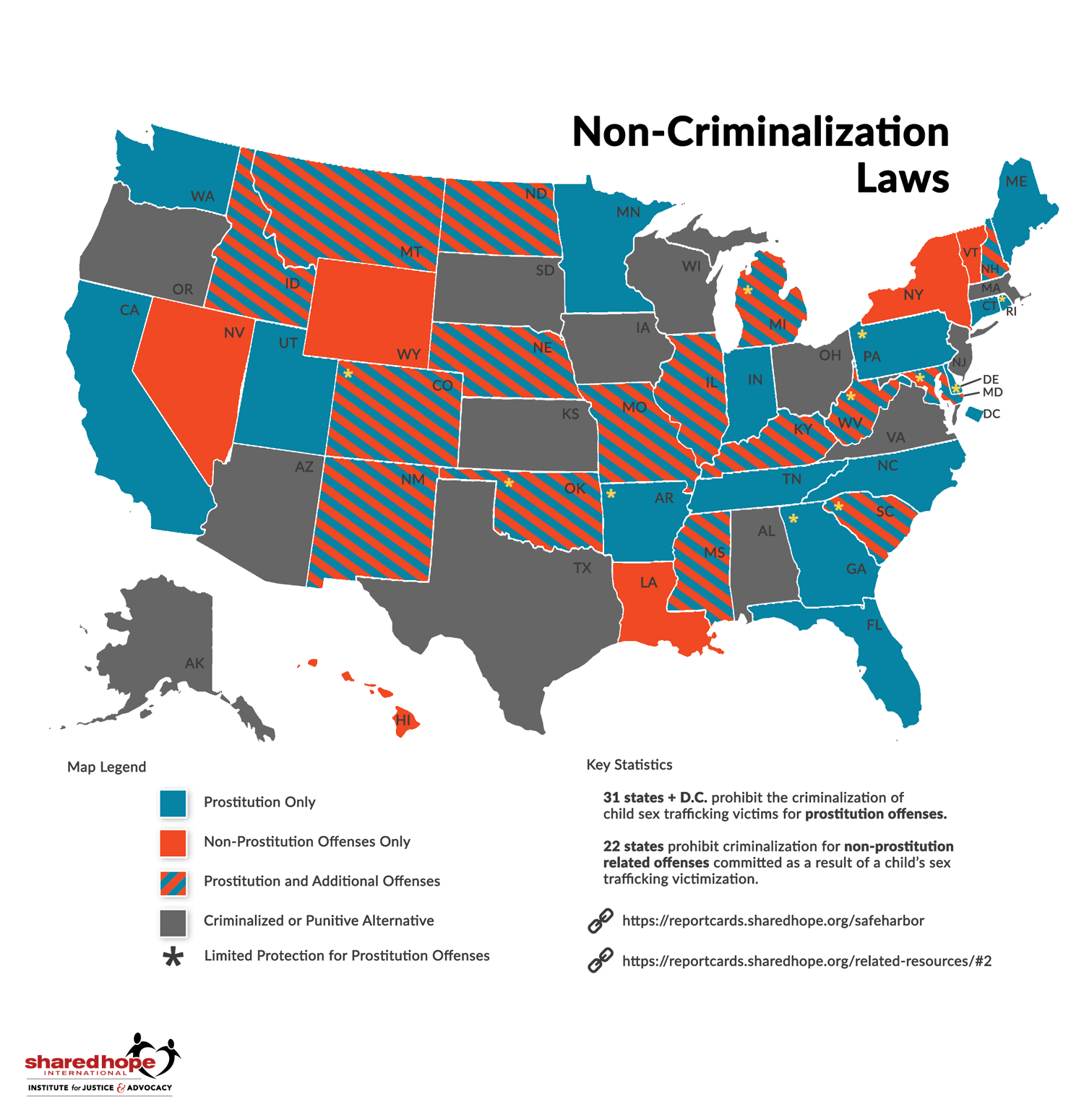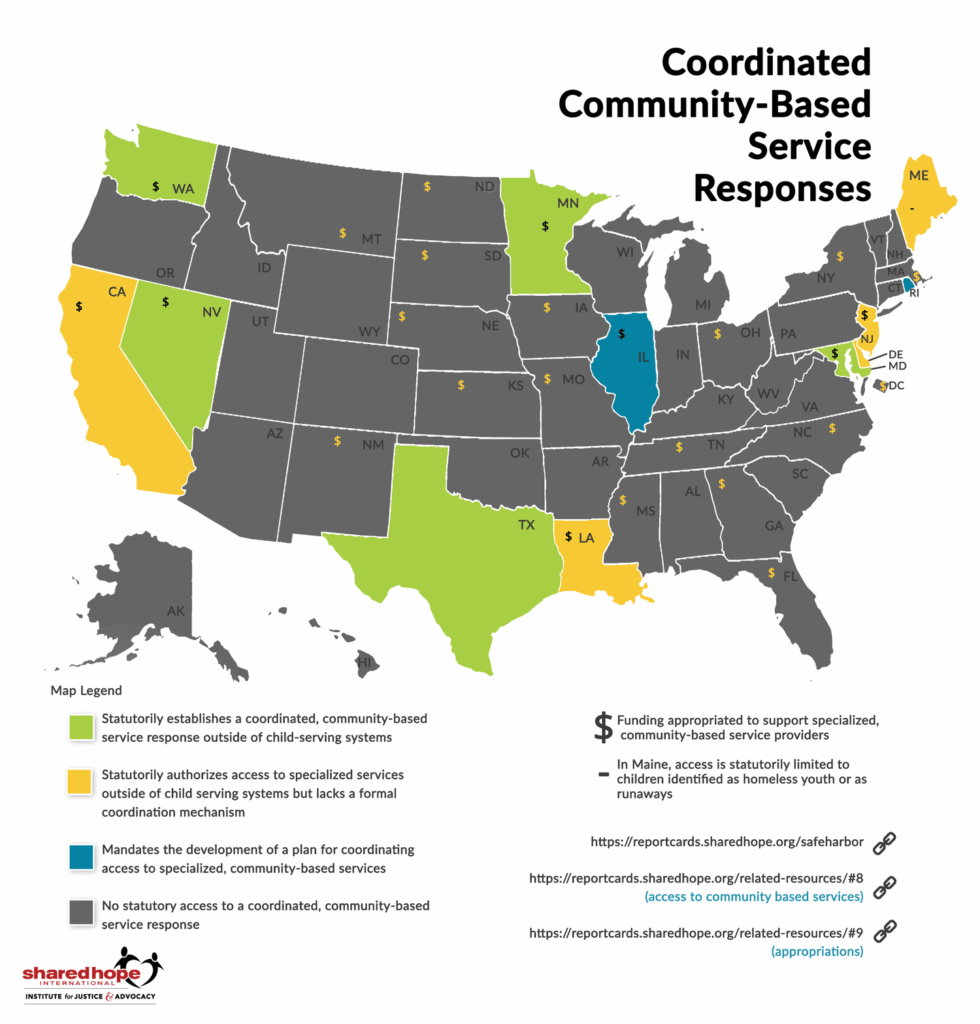
Safe Harbor Laws
What Is Safe Harbor?
Non-Criminalization
Non-criminalization laws prohibit the arrest, detention, charging, and prosecution of all minors for prostitution offenses—regardless of whether a finding of trafficking victimization has been made. These laws acknowledge that children who experience commercial sexual exploitation are not prostitution offenders and, instead, should be identified—and responded to—as victims of sex trafficking.

Specialized Services
Survivors of child sex trafficking often have complex needs that cannot be addressed by a single agency or service provider. It is important that child sex trafficking victims not only receive a broad array of treatment but also that treatment is specialized to the unique trauma associated with commercial sexual exploitation. Further, these services should be provided through a number of entry points, including those that do not require involvement in child-serving systems.
The Future of Safe Harbor
Ensuring victims of child and youth sex trafficking are not involved in the juvenile or criminal justice system AND receive trauma-informed care. Appropriate identification and access to services are vital to creating a just response for victims of child and youth sex trafficking.


Behind everything that is put on the face of a trafficking survivor, what they are really like is human. When you strip everything down, they’re not a bad person, they’re not a perpetrator, they’re not a delinquent. They are not somebody who has chosen this life. They are a child and they have had experiences that no child should ever have.
-Survivor

Investing in Community-Based Services
Too often, systems are the default response for protecting children—yet these systems may separate children from their families, communities, and from the very support networks that foster resilience and reduce the risk of re-exploitation. Ending child sex trafficking requires investing in community-based services that support healing while keeping children connected to their families and communities whenever safely possible.
Learn more about the importance of community-based services in supporting Safe Harbor efforts in the White Paper linked below:
Community-Based Services White Paper
What we do to children in this country is very unfortunate and they pay the price for what has happened to them. The buyers get to go home and live normal lives and continue in their marriages, in their jobs and careers, and are never affected by this. But while they’re home, you have a child sitting in a jail cell. And where’s the justice in that?
-Survivor

What You Can Do



